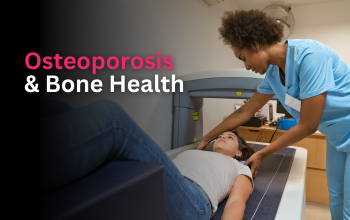The Arthritis Newsletter
Spring 2015Welcome to Arthritis Research Canada
By Gerry Sheanh
Dr. John Esdaile, scientific director and driving force behind ARC, talks about ARC’s growth, development and objectives.
At the beginning of January 2015, the Arthritis Research Centre of Canada announced that henceforth the organization would be known as Arthritis Research Canada (ARC). We asked Dr. John Esdaile, ARC’s scientific director and a leading rheumatologist, about the change and what it means for arthritis research moving forward.
Dr. Esdaile, The Arthritis Research Centre of Canada recently changed its name to Arthritis Research Canada. Why the change, and does the new name better reflect the mandate and scope of the organization?
Until recently, ARC was a single research centre located in Metro Vancouver. There are now important centres at the University of Calgary (McCaig Centre) and Laval University which bring new research and consumer skills to ARC as well as helping to move ARC towards speaking to Canadians in both French and English. So, the new name captures what is happening better that the name of 15 years ago. The original name was an aspiration. The new name attests to the fact that the Board of Directors of ARC is making the aspiration a reality. And also, the new English name is the translation of our French name – Arthrite-recherche Canada.
In an ideal world, and given the research funding you need, what would you say are ARC’s main research priorities over the next three to five years?
Well, first of all, the world is not ideal, but our organization’s Mission and Vision statements encapsulate the underlying purpose of our work at ARC. Our Mission is to transform the lives of people living with arthritis through research and engagement. Simply put, our vision is a future where research-based services, tools and knowledge empower people living with arthritis to triumph over pain and disability.
Having said that, we can only do research that is funded. ARC does not fund the actual research. If a project cannot get peer-review funding, it does not get done, so only research we can convince others is worth doing is done.
We have a multidisciplinary team across our British Columbia, Alberta and Quebec centres with a comprehensive range of research skill sets and current knowledge bases. This gives ARC the ability to look at one particular important question, such as complications of arthritis, from multiple perspectives using multiple techniques. Of course, we also collaborate with scientists across Canada and around the world in addressing our real priorities, which are to treat arthritis and its complications and to answer questions important to health care practitioners, policy makers and consumers.
ARC has a very active Arthritis Patients Advisory Board (APAB). How do you see that group contributing to arthritis research?
APAB fulfills several important roles at ARC. Patient partners work with our scientists in refining research questions, helping design studies and doing research. They also assist in translating results to the public, policy makers and health care professionals. And, in addition to assisting with fundraising efforts, APAB serves collectively as advocates both for patients with arthritis and for the research itself. Our APAB members also deliver sessions at conferences and facilitate public forums designed to translate the most recent findings to the general public.
Research is expensive. How does ARC manage to secure funding for its many ongoing scientific research into arthritis?
ARC’s primary focus is obviously research, and the master work of research is work. Further, the master work of funding is work. At ARC we are vigilant in seeking grant funding to continue our work. ARC scientists use a team approach to work together and focus like a radio beam on a question. They do not give up easily. We have achieved some promising research results, but there is always more to do. With talented researchers and scientists, a strong Board of Directors, a dedicated support staff and an active patient advisory group ARC is well-positioned to flourish as a key arthritis research centre, both now and in the future.





















































